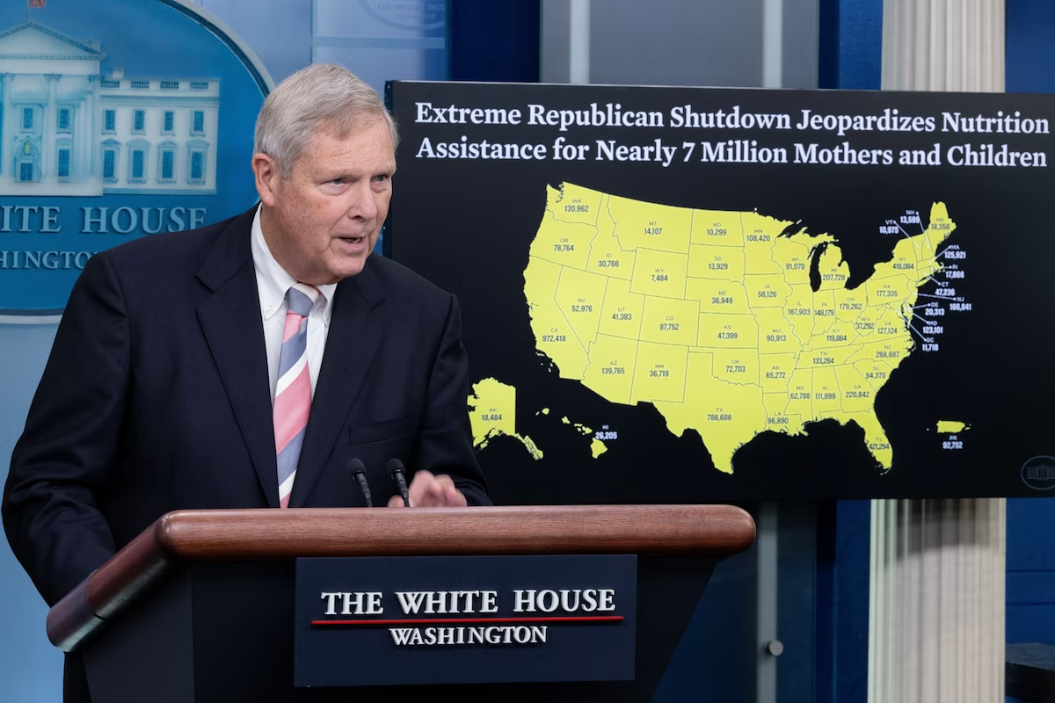In a Government Shutdown, Here Are The Nutrition Programs Affected

A government shutdown could have an immediate impact on WIC — a program that provides grocery assistance to 7 million pregnant people, mothers and children, including more than half of all newborns in the United States.
Some recipients of the Special Supplemental Nutrition Program for Women, Infants and Children may be turned away from stores as early as next week, said Geri Henchy, director of nutrition policy at Food Research & Action Center, a nonprofit organization for eradicating hunger and undernutrition. Many families may be unaware the program stopped putting money on their electronic benefits cards and will be stranded at the grocery checkout with no way to pay, she said.
“What’s being proposed is just shutting off the money. For many states, that means the program just stops,” Henchy said.
The Agriculture Department has a contingency fund that might continue the program for a day or two, and some states may have leftover benefits that have not been spent, Agriculture Secretary Tom Vilsack told reporters during a White House press briefing on Monday.
WIC isn’t the only nutrition benefit that would be affected if a shutdown drags on. The Supplemental Nutrition Assistance Program (SNAP, formerly known as food stamps), which serves 40 million low-income Americans, could continue uninterrupted through at least the end of October.
“Now, if the shutdown were to extend longer than that, there would be some serious consequences to SNAP,” Vilsack said Monday.
Experts say a shutdown could hinder the implementation of a new expansion of the federal school meal program.
On Tuesday, the USDA announced it will give an estimated 3,000 more school districts in high-need areas the option to serve free breakfast and lunch to all students. But implementing this new guidelines could be stymied if the Food and Nutrition Service staff that administers the National School Lunch Program is furloughed.
“States will have a lot of questions and need a lot of guidance. It’s a huge lift to launch a new program,” said Lisa Davis, senior vice president of Share Our Strength’s No Kid Hungry campaign.
A prolonged shutdown could affect another new nutrition program, this one aimed at expanding summer options. The program would give debit cards to low-income students for about $40 per student per month starting in summer 2024. A shutdown could mean no administrative funding to roll out the new program.
By Laura Reiley, Washington Post
Photo by Michael Reynolds/EPA-EFE/Shutterstock
